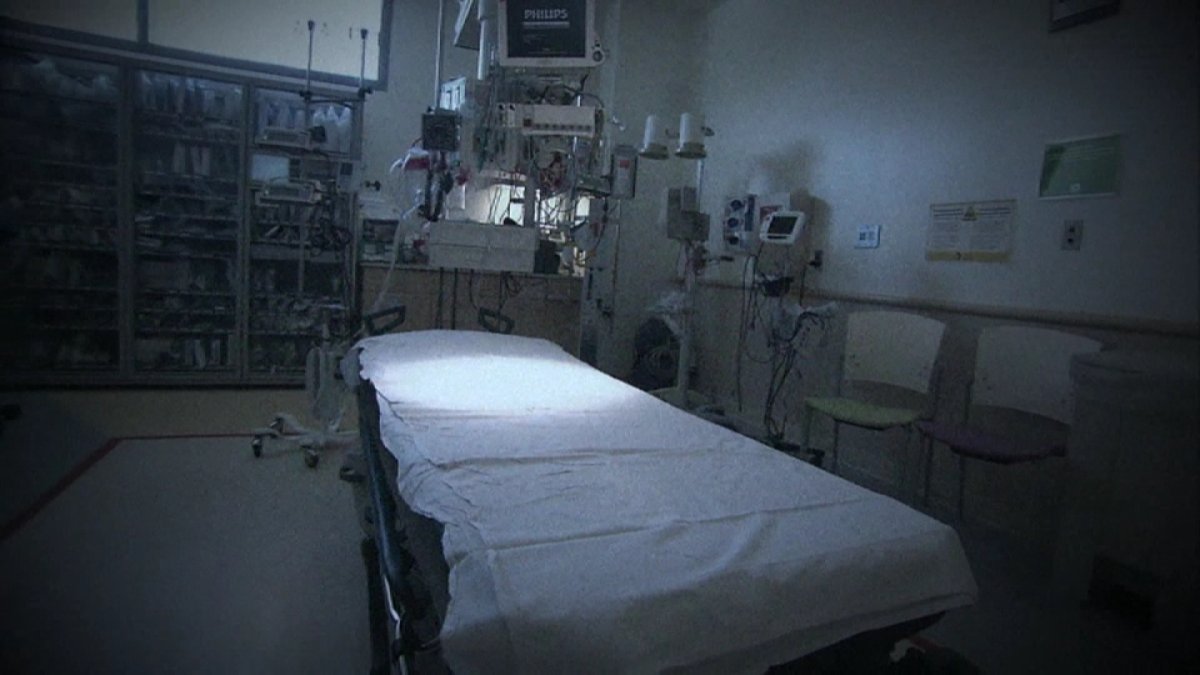MONTREAL — The Quebec Community Groups Network has launched a Facebook page in protest over Bill 10, the Quebec government’s planned reform of the healthcare system.

The page warns the bill is proposing to apply “shock therapy to our health and social service system.”
It goes on to ask Health Minister Gaetan Barrette, himself a physician, to consider all “possible side effects of this course of treatment before moving boldly ahead.”
QCGN is a not-for-profit organization linking 41 English-language community organizations across Quebec.
It was one of only three English-language organizations that presented a brief before the Commission on Health and Social Services.
WATCH: QCGN at Bill 10 hearings
In its brief, QCGN calls on the government to find a way to ensure that Quebec’s English-speaking communities continue to have some degree of control and management over the institutions that they built and have supported for generations.
READ MORE: QCGN obtains promises from minister at Bill 10 hearings
Bill 10 calls for the abolition of boards of directors of most health and social service institutions.
For example, on the island of Montreal, institutions including the Jewish General Hospital, Constance Lethbridge Rehabilitation Centre and Batshaw Youth Protection Services would all be merged into one mega centre serving the West Island.
Only the MUHC, CHUM, Ste-Justine Hospital and the Montreal Heart Institute would remain independent.
In Quebec City, Jeffery Hale Hospital will be merged with the Quebec City mega centre.
In all, some 180 health and social services institutions would be merged into 28 new integrated centres.
QCGN has also launched a petition against Bill 10, which can be found here.
According to the petition, if Bill 10 is passed as currently drafted, it will have a number of unwanted side effects:
- Bill 10 removes from the system a key partner in delivering the best care to the most people at the best cost: the community that supports the institution.
- The bilingual status of our institutions risks being eroded. Exemptions that allow internal communications, board meetings, signs and patient record-keeping in English along with French will be at risk.
- Any savings to the system may well be offset by the reduction in donations from private donors, foundations and corporations, who donate and connect with individual institutions rather than with the healthcare system as a whole.
Writing in the Montreal Gazette, lawyer and community advocate Alex Patterson expressed concern that the future boards of directors of these mega centres will be appointed by the provincial government instead of being elected by the public.
“The strength of our institutions lies in part in the fact that the communities in which they provide services take a great interest in them.”
Patterson expressed concern that government-appointed boards would be less involved in the healthcare organization they serve.
Others agree.
Jean Robert, president of the Jeffrey Hale Foundation, told Global News that foundations may stop donating to local institutions if they don’t feel connected.
“If for some reason we say this is really no longer our hospital, yes it is in name, but it’s just not part of who we are anymore.”
“Then the Foundation starts to question whether we should be putting millions of dollars, it’s not just $150, it’s millions of dollars, invested in St. Brigid’s Home, Jeffrey Hale.”
The QCGN Facebook page contains links to many of the items written on this topic in the weeks since Bill 10 was first presented in the National Assembly.
WATCH: QCGN Director General Sylvia Martin-Laforge on Bill 10




Comments